A mortgage isn’t just a loan, it’s a financial agreement with defined timelines, commitments, and key milestones. One of the most important is the mortgage maturity date, which marks the end of your current term.
Simply put, the mortgage maturity date is the day your existing agreement with your lender expires, and your remaining balance becomes due. For most borrowers, it’s the moment to choose whether to renew, refinance, or pay off the loan. Knowing your options now can save time, stress, and money later.
Understanding the Mortgage Maturity Date
Your mortgage term is the set period you’ve committed to a specific interest rate, payment schedule, and lender. Terms in Canada often range from 1 to 5 years, though they can be longer. The mortgage maturity date is simply the last day of that term.
Because most Canadian mortgages are amortized over a much longer period, usually 25 years, you’ll likely still owe a portion of your principal when the term ends. This means you’ll need to take action to continue or conclude your mortgage.
Why the Maturity Date Matters
The maturity date is a financial checkpoint with direct impact on your future plans:
- Decision-making: You must decide whether to renew, refinance, or pay off the balance.
- Potential savings: It’s a chance to find a better rate or terms that better match your current needs.
- Avoiding risk: Doing nothing could lead to an automatic renewal at rates that may not be the most favourable for your situation.
Approaching this date prepared gives you more control and flexibility.
Your Options When the Maturity Date Approaches
When your mortgage term is close to ending, you typically have 3 main paths forward.
1. Renew Your Mortgage
Renewal means continuing with your current lender under new terms. You’ll agree on a new interest rate, term length, and possibly a new payment structure.
Advantages:
- You’ll have minimal disruption, and no need to change lenders or requalify elsewhere.
- Some lenders offer competitive loyalty rates to retain clients.
Considerations:
- Compare rates and terms from other lenders before committing.
- Adjust the term or payment schedule to match your current financial situation
2. Refinance Your Mortgage
Refinancing replaces your existing mortgage with a new one, often with a different lender or altered terms. This can be used to:
- Access equity for renovations, investments, or large expenses.
- Consolidate higher-interest debt into your mortgage.
- Adjust your amortization or payment frequency.
Refinancing can be used as a strategic tool—not just a way to change your rate. It’s an opportunity to evaluate whether new terms align with your current financial goals and lifestyle needs.
3. Pay Off the Remaining Balance
If your finances allow, you can clear your mortgage entirely at maturity.
Advantages:
- Complete ownership of your home.
- No further interest payments.
Before you proceed, confirm the process with your lender to help support a smooth payout and clear title transfer.

Preparing for Your Mortgage Maturity Date
A proactive approach gives you the time to secure favourable terms and avoid last-minute stress.
Start the Process Early
Although lenders must provide renewal statements at least 21 days before maturity, it’s smart to start evaluating your options 4–6 months ahead.
Assess Your Current Situation
Your needs may have changed since you first signed your mortgage. Consider:
- Income and expense changes.
- Plans for retirement, relocation, or home improvements.
- Desire to accelerate or slow repayment.
Factor in Market Conditions
If interest rates are lower than when you signed your mortgage, renewal or refinancing could mean substantial savings. If rates are higher, consider options that maintain flexibility without locking you into unfavourable terms for too long.
Renewal vs. Refinance
Both renewing and refinancing can refresh your mortgage terms, but they serve different purposes:
- Renewal: If you’re satisfied with your lender and only want to update your rate or term.
- Refinance: If you want to access equity, change amortization, or switch to a lender offering more favourable features.
A mortgage professional can help you compare both options against your goals.If you let your maturity date pass without a plan, your lender may automatically renew your mortgage—often at a higher rate or less flexible terms. While this keeps your mortgage active, it can cost you more over time.
Working with Mortgage Connection
Your mortgage maturity date marks the end of your current term and the start of an important decision‑making period that can shape your financial future. Viewing it as both a deadline and an opportunity can help you approach it with confidence.
Planning ahead gives you more options, greater negotiating power, and less stress when it’s time to decide whether to renew, refinance, or pay off your balance. At Mortgage Connection, we’re here to help you explore the strategies that make sense for your goals y providing clear information and guidance tailored to your needs. If your mortgage maturity date is approaching, contact us to review your options and find the solution that fits your goals.




